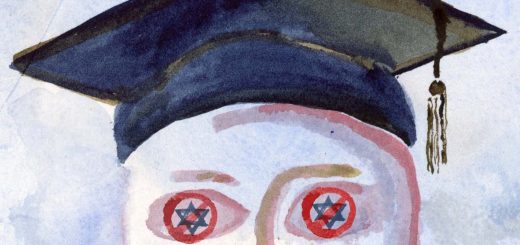Emor – Living in Our Own Worlds

Any “blemish” on a list of congenital or acquired conditions prevents service in the Mishkan or Beis Hamikdash (Vayikra 21:17-24). And there are dozens of other non-listed disqualifying blemishes (see Rashi, ibid 21, and Baal HaTurim there).
That a physical malformation or injury should prevent a kohein from performing certain services is a chok, something not subject to human understanding.
Rav Mechel Twerski notes that a kohein who, due to a physical blemish, is disqualified from Bais Hamikdosh service is being signaled that his destiny, his assignment in life, is to bring the special qualities of a kohein to a non-Beis Hamikdosh role.
The idea that limitations are pointers to the roles we are meant to play is, as I noted three years ago, elsewhere in parshas Emor, in the account of the mekalel, the blasphemer.
Rashi, quoting Rabi Levi in a Midrash, elaborates on the words “And he went out” (Vayikra, 24:10) that “He went out of his world.” His world. Each of us, that might mean, has his or her own world, a unique assignment to be recognized and embraced.
A second Midrash Rashi cites about the phrase “And he went out” is that the blasphemer had just left the court of Moshe, where he had lost his case. He had claimed that, as his mother was Jewish (although his father was an Egyptian), he was entitled to a portion of land in the area of his mother’s tribe, Dan. The ruling, however, was that, while he was a member of the Jewish people, he – uniquely, among the people – owned no portion of the land.
That left him with two options: Either to accept that fate, and recognize that it was “his world” – a personal situation that somehow positioned him for a particular, singular role to play in society. Or to angrily reject the ruling. He chose the second path, to put it mildly. Thus he “left” not only the court but his world. He abandoned his life assignment.
All who see their life circumstances as “unfair” face a similar choice. The key to true success in life is to seize one’s individual, unique circumstance, no matter how limiting or painful or puzzling it may seem, recognizing that it is his or her “own world” – what makes them special. And then, after ascertaining what that specialness might be demanding, getting down to work.
© 2024 Rabbi Avi Shafran
My most recent Ami column, “A Woke-Up Call for NPR ,” can be read here.



Recent Comments